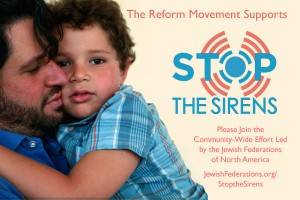Listen. The word occurs over and over. “Listen to me”, “Hear this,” I heard that”, “Shema Yisrael Adonai Elohaynu, Adonai Echad.”
The portion tells us to listen. But how do we listen when we ourselves need to be heard?
Moses recounts the story of Meribah and shares his truth; he is punished on account of the people, Lmanchem— because of you. That is not the story we read in Exodus. But that is how Moses remembers, and that is how he shares. That is Moses’ story. So how do we reconcile two different recountings of the same events?
This is the story currently underway in Israel. Our narrative is of a proud miraculous nation forged from nothing against all odds. Theirs is a very different story. Both share many of the same facts. How do we hear a truth that is so different from the one we know? How can we hear the truth of another, if we are caught up in our own narrative and our own need to be heard?
If we are to someday reconcile and create an opportunity for two people to coexist, we must listen. We must try to understand the retelling of the story in a different way while maintaining and building our story.
Once again the fragile truce has been shattered. And it is all but impossible to step back enough to gain the perspective that is needed to move beyond this time of war. But somewhere down the line, as we insist that “they” must listen to us, we too must somehow also listen to “them.”
Let us continue to work for a day when peace may come.
Shabbat Shalom

